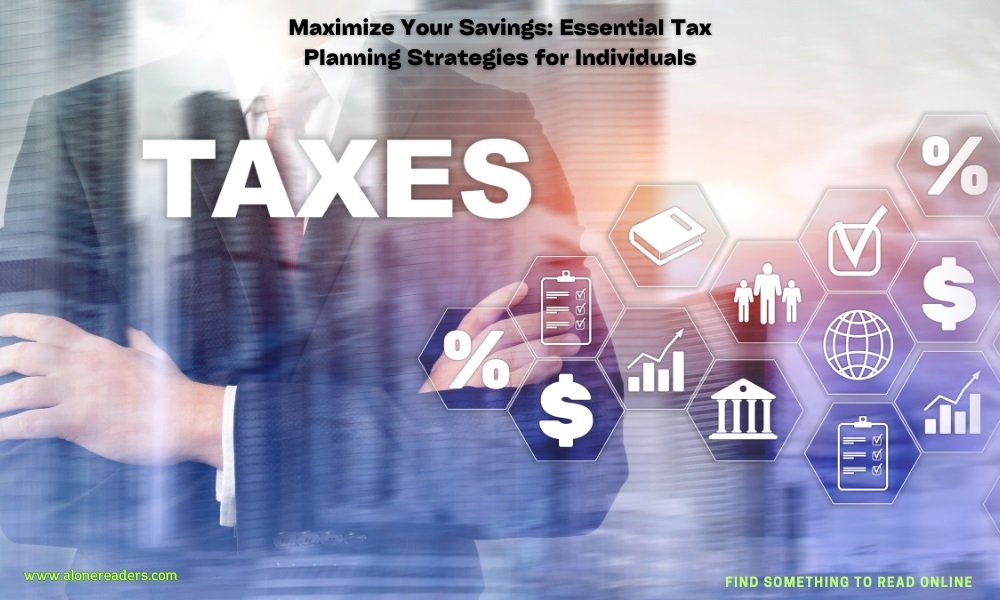
Tax planning is an essential component of personal financial management. By understanding and applying effective tax strategies, individuals can significantly reduce their tax liabilities, maximize their savings, and achieve their financial goals. This article provides a comprehensive guide to smart tax planning for individuals, covering various tactics from basic to advanced levels.
Tax planning involves analyzing one's financial situation from a tax perspective with the aim to minimize tax liabilities. This can involve making investments, savings, and spending decisions that are tax-efficient. Effective tax planning not only helps in saving money but also aids in efficient financial planning and the legal avoidance of taxes, which is different from tax evasion—a legal offense.
The foundation of effective tax planning is timeliness. Starting early in the fiscal year allows for more time to explore all available tax-saving options and make thoughtful financial decisions. Regular review of your financial plan ensures that you are on track to meet your goals and can adjust to any new tax laws or changes in your income.
Tax-advantaged accounts such as IRAs (Individual Retirement Accounts), 401(k)s, and health savings accounts (HSAs) are powerful tools in tax planning. Contributions to these accounts can reduce taxable income and the growth of investments in these accounts is tax-deferred or even tax-free.
Choosing the right investments can influence your tax situation. Long-term investments, like stocks held for more than a year, are taxed at a lower rate compared to short-term investments. Additionally, considering municipal bonds for investments can be beneficial as the interest earned is often exempt from federal income tax and, in some cases, state and local taxes as well.
Itemizing deductions can be a beneficial strategy for those whose personal expenses exceed the standard deduction. Common itemized deductions include mortgage interest, state and local taxes, charitable contributions, and medical expenses exceeding a certain percentage of your adjusted gross income. Understanding what can be itemized can significantly reduce taxable income.
Charitable giving not only benefits the recipient but also the donor through tax deductions. Donations to qualified organizations can be deducted if you itemize your taxes. Moreover, considering strategies like donating appreciated securities instead of cash can further enhance tax benefits.
Tax credits are more valuable than deductions as they reduce tax bills on a dollar-for-dollar basis. Taking advantage of education-related credits such as the American Opportunity Credit or Lifetime Learning Credit can be significant. Additionally, for those with dependents, exploring credits like the Child Tax Credit and Child and Dependent Care Credit can be advantageous.
Contributions to retirement accounts not only secure your future but also provide tax relief today. The earlier you start contributing, the better you can leverage the power of compounding along with reducing your taxable income each year through contributions to tax-deferred accounts.
Tax laws are complex and changing frequently. Consulting with a tax professional can provide personalized advice tailored to your specific financial situation. This can be particularly beneficial for those with multiple income streams, significant investments, or unusual tax situations.
Tax laws can change significantly from year to year. Staying informed about these changes is crucial as they can impact your financial strategy. Regular updates from a trusted financial news source or consultations with a tax professional can help you navigate this.
Conclusion
Smart tax planning is crucial for managing your finances effectively. By employing these strategies, individuals can reduce their tax burden, increase their savings, and secure their financial future. Remember, the key to successful tax planning is not just about reducing taxes but aligning your financial activities with your overall financial goals and ensuring compliance with the law. Whether you are just starting out or are looking to refine your strategies, consider these tips to enhance your tax efficiency and save more.